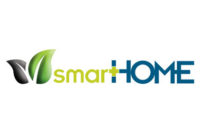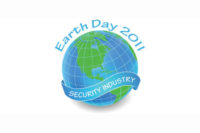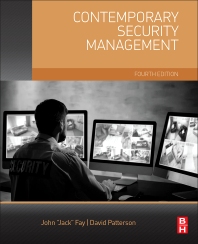Security Dealers See How Green Initiatives Impact Their Bottom Lines
In the past decade, “green” discourse has emerged both in personal circles as well as in businesses. The color has come to be associated with a variety of practices and ideas that have anything to do with preserving nature and minimizing man’s negative impact on the environment. We are continually urged to recycle, conserve and be aware of our “footprint” by politicians, federal agencies and even media personalities. But the green movement is no longer only about political statements and concerned individuals. As security companies of all shapes and sizes are finding out, green is just good business.
Fuel economy is a key concern for an industry characterized by the majority of its work happening outside of headquarters. ADT recently reported it will save $5.3 million in fuel costs and reduce greenhouse gas emissions by replacing a large part of its fleet of oversized and inefficient vehicles with 3,000 Ford Transit Connects, compact vans that boast 22 to 25 miles per gallon.
Though some ADT technicians were skeptical the considerably smaller van would not carry all of their equipment, a five-week pilot program dispelled doubts and established the new vehicles as a more convenient option for residential and small business installers, especially those working in urban areas.
Some companies were implementing conservationist strategies long before the now widespread awareness of the green trend. “We were environment friendly before the environment knew it needed us,” says Ed Bonifas, vice president of Alarm Detection Systems Inc., Aurora, Ill. Alarm Detection Systems has been running a fleet of diesel-fueled Volkswagens since 1981; currently it consists of 75 vehicles.
Though the carbon content in diesel is slightly higher than gasoline, superior fuel economy results in lower carbon emissions from diesel-powered vehicles. According to the company, these vehicles get more than 40 miles per gallon of fuel — outperforming most hybrids. For a company that puts more than 2 million miles a year on its fleet, the overall emissions and fuel costs are greatly reduced.
In addition, the cars are dutifully maintained and run well past 250,000 miles. By extending the life of the vehicle, the company cuts costs and generates less waste in the disposal of the cars. In addition, by running a uniform fleet, parts can be recycled and reused at the end of a car’s life.
According to Bay Alarm, sustainability is as much about the environmental as it is about fiscal responsibility. Waste is a double offender, as it harms the environment and depletes costly resources. Being mindful of inefficient practices is one way the company is ensuring its own permanence in the industry.
To eliminate waste, Bay Alarm has developed a conservation program that includes relying on solar power for one-third of its energy consumption and supplementing that with low-wattage, compact, fluorescent lighting in all of its offices, utilizing hybrid SUVs for patrol and inspection services and a software that manages its service calls and determines the most efficient route so that fuel is conserved, among other projects.
There is a lot of variety in the security industry’s move towards greener operations. ScanSource Security of Greenville, S.C. put into practice a recycling and disposal of electronic security products program for dealers. Partnering with E-Waste LCC, the company can control release of harmful materials like lead, chromium and cadmium. According to ScanSource Security, this program creates value-added service opportunities for dealers and also helps them conform to federal and state-level environmental disposal procedures.
APX Alarm Security Solutions Inc. is taking a holistic
approach to energy efficiency with its new corporate campus in
With this new headquarters, APX seeks to implement sustainable practices that also impact its employees’ experiences. By providing daily lunches at the café on premises, the company reduced employees’ commutes to not-so-nearby amenities and by installing soda fountains instead of selling bottled water and sodas, the company is reducing plastic waste, as well.
In addition, the company recently introduced an energy management package, a thermostat that integrates with the security panel and can be programmed to three energy-saving settings. The package also includes 12 compact fluorescent light bulbs for the customer and estimates monthly savings of $25 on energy bills. Alex Dunn, chief operating officer at APX, says “It’s the little things that can make big changes. If each customer uses a little bit less energy each month, that adds up to a lot of carbon taken out of the environment.”
For security consultant Thomas Hines, president of Secure
Matrix,
Steve Sopkin, president of Mijac Alarm, Rancho Cucamonga, Calif. says being environmentally friendly is about working smarter, not harder. Mijac has implemented a number of green programs, such as filing all paperwork electronically, installing skylights in its sales office and lunchroom to reduce artificial lighting and using low-voltage and halogen lighting where necessary, installing timers on thermostats, recycling printer cartridges through a local charity, returning batteries to manufacturers so their lead content can be disposed of safely, and offering paperless e-mail invoicing and electronic payment processing to save on paper, processing time and postage, among other initiatives.
“The world has always been green, we’re just trying to minimize our impact, right? Not to mention the fact that it saves money, uses less energy, less landfill space and protects future generations’ chance of survival. Isn’t that what the security industry is about, security and survival?” asks Sopkin.
Looking for a reprint of this article?
From high-res PDFs to custom plaques, order your copy today!







